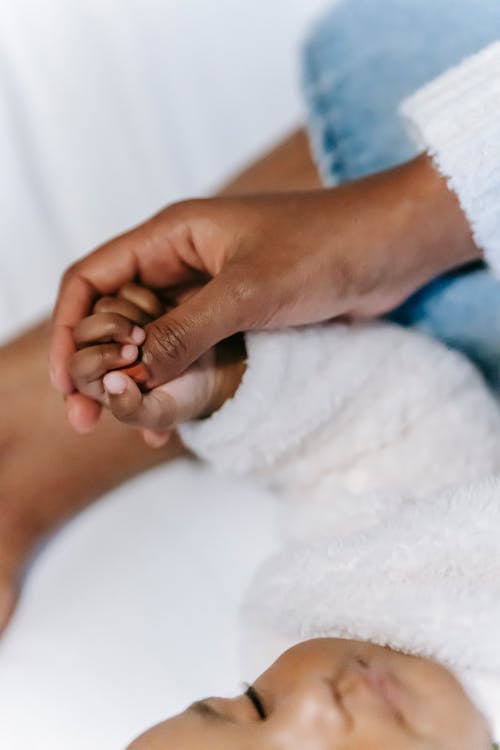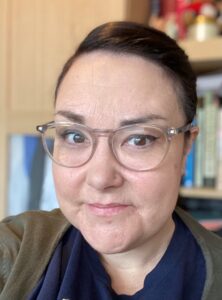
Hypothetically, if you were to cut me open, you’d find ‘MIDWIFE’ written through me like a messy and macabre stick of rock.
Like so many, my professional and personal identity are so intrinsically linked with shared values; being a midwife is not just what I am, but who I am. My philosophy has always been and will ultimately remain grounded in evidence-based practice to provide safe, effective care, as well as valuing individual’s needs, wants and experiences, remaining passionate about equitable and safe clinical care with a deep sense justice both within and outside of the system. This is, after all what has led me down my professional and academic pathway.
As of March 2021, 39,070 midwives appeared on the NMC register (NMC, 2021), and a proportion of registrants work outside of providing direct clinical care – myself included – in a range of roles which include research, academia, education, policy, leadership – the list goes on. Each one of those roles provides for a complex and integrated network of experts who in their own way, influence excellent care.
Leaving clinical work for midwifery education was, amongst other reasons, driven by the need to influence excellence in practice and facilitate robust, evidence-based education for students and thereby maybe, just maybe, they might feel empowered to provide excellent, compassionate clinical care and become passionate advocates.
I sensed acutely that transition from clinician to educator, encountering a profound sense of loss of clinical care, which I recognised as the movement from expert to novice (Foster, 2015), a phenomenon well documented in a variety of professions. I soon made that transition, however when COVID-19 reached our shores in early 2020, a country wide call was made to registrants for them to return to the front lines (Nursing Times, 2020) to provide maternity care, as well as redeployment across other areas of the healthcare system, many of my colleagues being dual registered.
I didn’t return to practice (despite many nights of anguish trying to rationalise how I could continue my educational role, manage family life, AND support my front-line colleagues). I ultimately knew that my expertise was best placed supporting students and providing an education, after all, these were to be the future workforce that would, despite living through one of the most challenging times in healthcare, go on to be leaders in their clinical field.
Having this experience, I anticipated the same seismic shift when I moved into full time doctoral research and prepared accordingly for that feeling of loss. Fast forward to now, and I only just feel comfortable referring to myself as a PGR rather than hiding behind my other professional identity as a midwifery clinician and educator. I know this is common amongst peers, it’s something I’ve reflected on at length with other PGRS who work currently or previously within healthcare.
But recently those feelings have returned with vigour.
Maternity care in the UK is going through significant scrutiny following independent reviews of maternity services at NHS trusts (DHSC, 2021), addressing profound inequality and poor outcomes in black and minority ethic women (MBRRACE-UK, 2020; FiveXMore, 2021) and implementation of Better Births (2016) through the maternity transformation programme. This is all against a background of an ongoing pandemic and serious workforce staffing and retention concerns across midwifery (RCM,2021) and nursing (Guardian, 2021). It has been hard therefore to reconcile feelings of being needed back ‘at the coal face’ with the guilt of continuing my research. I now recognise this dissonance as moral distress, which whilst most aligned with being powerless within a healthcare system, can be experienced in other areas.
I have, through peer reflection, been comforted by the fact that, firstly, I am not alone, as many PGRs with a healthcare background are feeling the same. Secondly, that having identified a gap in knowledge, I can focus on improvement from a different perspective, and that whilst it is tempting to temporarily abandon postgraduate research (as a wise person called ‘responding to the call to action’) and return to clinical work in the time of crisis, ultimately making a difference with research is a valid goal contributing to the wider body of knowledge, and of as much value as walking the wards. Ultimately this will shape a better, more reflexive researcher, academic and clinician.
How are others feeling? Is this a phenomena particular to healthcare PGRs?
by Anna Madeley @AnnaTheMidwife
 Anna is a full time doctoral researcher in her second year at the Open University and a registered midwife. Prior to starting at the OU, Anna worked in a variety of maternity settings including practice development, her last clinical post as a senior midwife establishing and running a home birth team before moving into midwifery education as a Senior Lecturer. Anna remains connected with midwifery education with specialist teaching and interests in all aspects of contemporary midwifery practice, physiologically informed care, research, individualised and complex care planning and supporting home birth. Anna’s previous MSc research explored the experiences of midwives supporting women with complex needs (physical, medical, obstetric and psychological) who choose to birth at home. Her doctoral work explores the experiences of women who make non-normative choices in pregnancy.
Anna is a full time doctoral researcher in her second year at the Open University and a registered midwife. Prior to starting at the OU, Anna worked in a variety of maternity settings including practice development, her last clinical post as a senior midwife establishing and running a home birth team before moving into midwifery education as a Senior Lecturer. Anna remains connected with midwifery education with specialist teaching and interests in all aspects of contemporary midwifery practice, physiologically informed care, research, individualised and complex care planning and supporting home birth. Anna’s previous MSc research explored the experiences of midwives supporting women with complex needs (physical, medical, obstetric and psychological) who choose to birth at home. Her doctoral work explores the experiences of women who make non-normative choices in pregnancy.
